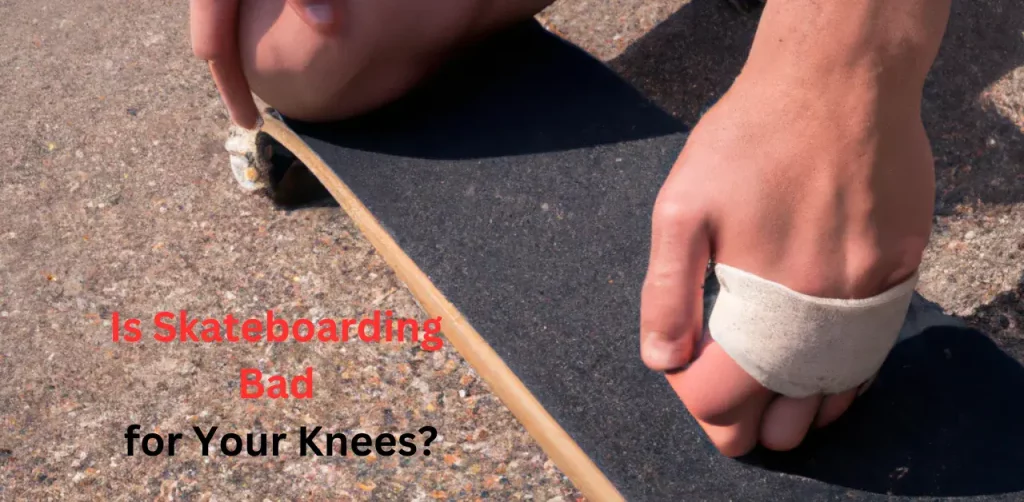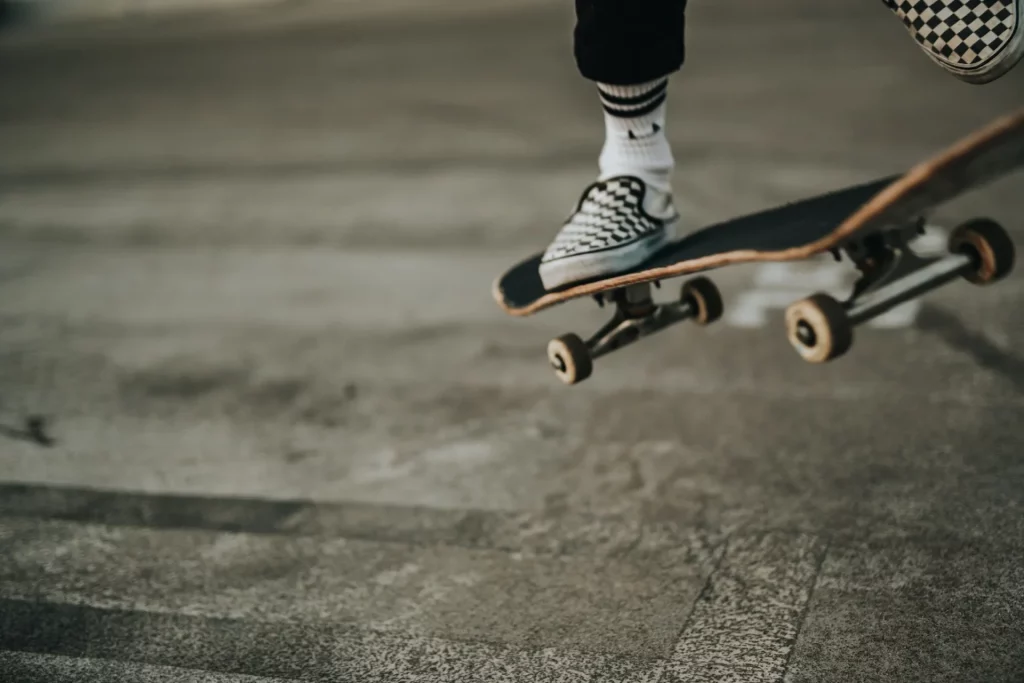Is skateboarding bad for your knees? The answer could be more straightforward. While there is no doubt that skateboarding can be tough on the joints, it’s not inherently bad for your knees. Many skateboarders have gone through their entire careers without any serious knee injuries.
However, riding a skateboard does come with some risks. Knee injuries are common among skateboarders, ranging from minor scrapes and bruises to more severe problems like torn ligaments or cartilage damage. Preventing knee injuries while riding a skateboard involves taking proper precautions, such as wearing protective gear like knee pads and being mindful of your movements while riding.
If you’re experiencing knee problems when riding a skateboard, there are ways to manage the pain and prevent further injury.
Skateboarding and Knee Health
Knee Injuries in Skateboarding
One of the most common areas of your body to get hurt while skateboarding is the knees. Skaters often experience knee pain, sprained ankles, and other knee problems due to the sport’s pressure on the knees and mobility demands. Knee injuries in skateboarding can range from mild bruises and scrapes to more serious ligament damage and cartilage wear.
How Skateboarding Affects the Knee Joint
Skateboarding may put a lot of pressure on the knees, especially during transition skateboarding, street skating, or when you lose balance in the air. This pressure can lead to knee injuries over time, such as sprains, strains, and instability in the knee joint. In addition, the repetitive nature of skateboarding can cause wear and tear on the cartilage, which may lead to chronic pain and even arthritis if not properly managed.
The Impact on Muscles and Joints
Skateboarding works for various muscle groups in your body, including those around the knees. While this can be a great workout, it also means that your muscles and joints are subjected to a lot of stress. If these muscle groups aren’t properly conditioned and strengthened, it can increase the risk of injury while skateboarding.
Common Skateboarding Injuries
Bruises and Scrapes
Injuries like scrapes, bruises, and cuts are quite common among skateboarders. These typically occur when a skater falls off their skateboard or scrapes their body part against an abrasive surface.
Sprains and Strains
Sprained ankles and strains in the muscles around the knee joint are among the most common skateboarding injuries. These injuries often result from improper landings, awkward falls, or sudden changes in direction while riding a skateboard.
Ligament Damage
Serious injuries, such as ligament tears, can occur when a skateboarder experiences a high-impact fall or unnaturally twists their knee. These types of injuries often require longer recovery and may even necessitate surgery.
How to Protect Your Knees While Skateboarding
Wear Protective Gear
Wearing knee pads and other safety gear, like helmets and wrist guards, can significantly reduce the risk of injury. Knee pads help cushion your knees from impact and can prevent knee injuries like scrapes and bruises, as well as more serious injuries like ligament tears.
Strengthen Your Muscles
To avoid knee problems and protect your knees while skateboarding, it’s essential to strengthen the muscles around the knee joint. This includes the quadriceps, hamstrings, and calf muscles. Properly conditioned muscles can help absorb impact and provide stability, reducing the risk of injury.
Skate Within Your Skill Level
If you’re a beginner, take the time to learn proper skateboarding techniques and gradually progress in difficulty. Pushing yourself too hard or attempting tricks beyond your skill level can result in injuries, including damage to your knees.
Warm Up and Cool Down
Before you start skateboarding, make sure to warm up your muscles and joints with dynamic stretches and light physical activity. After you’re done skating, cool down with static stretches to
Maintain flexibility and range of motion. This helps prevent injuries by preparing your body for the demands of skateboarding and aiding in recovery.
Maintain Proper Form
Improper form while skateboarding can put unnecessary strain on your knees and other joints, increasing the risk of injury. Focus on maintaining proper form and technique to minimize stress on your knees.
Listen to Your Body
If you experience knee pain or swelling while skateboarding, it’s important to stop skating immediately and give your body time to recover. Continuing to skate with an injury can worsen the problem and potentially lead to more severe damage over time. If the pain persists, see a doctor for advice on treatment and recovery.
Additional Tips for Knee Health
Incorporate Cross-Training Exercises
Incorporating other types of physical activity and training exercises into your routine can help improve your overall knee health. Activities like swimming, yoga, and cycling can improve your balance and coordination, strengthen muscle groups that support your knees, and increase your range of motion.
Wear Proper Footwear
Invest in quality skate shoes that provide adequate support and cushioning for your feet, ankles, and shins. This can help absorb shock and reduce the impact on your knees while skateboarding.
Seek Professional Advice
If you’re unsure how to skate or protect your knees properly, consult a professional skateboarder, coach, or sports medicine specialist. They can guide proper technique, training exercises, and injury prevention strategies.
Conclusion
Skateboarding isn’t inherently bad for your knees. It’s quite the opposite – skating can be a great way to get exercise and improve the strength and mobility of various muscle groups in your body. However, it’s important to take the necessary precautions to protect your knees and minimize the risk of injury while skateboarding.
By wearing protective gear like knee pads, strengthening the muscles around your knees, maintaining proper form, and listening to your body, you can significantly reduce the risk of knee injuries and enjoy the many benefits of skateboarding. So, while skateboarding can potentially hurt your knees if you don’t take the proper precautions, it can also be a fun and rewarding sport when approached with care and attention to safety.

“Welcome to our website, Here You’ll find a wealth of information on finding the right skating gear that will last for years to come, as well as tips and tricks to help you improve your skills. Whether you’re a beginner or an experienced skater, you’ll find something of value here.”



